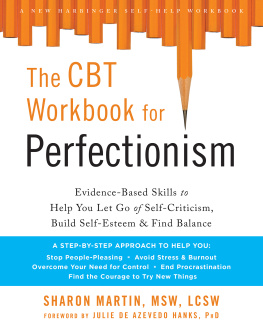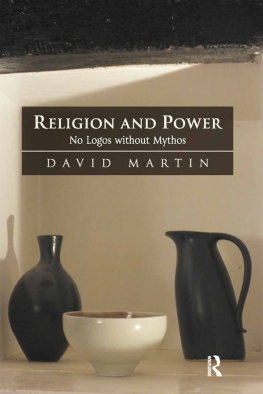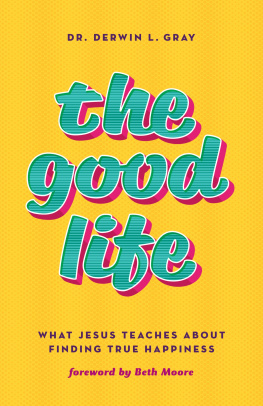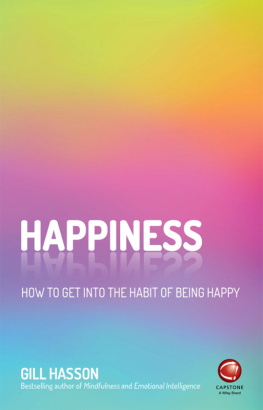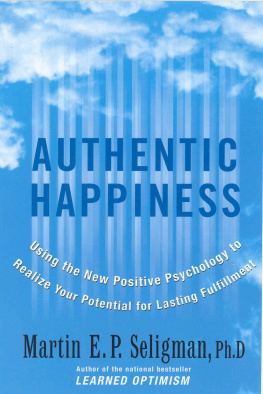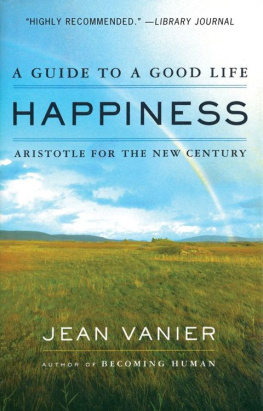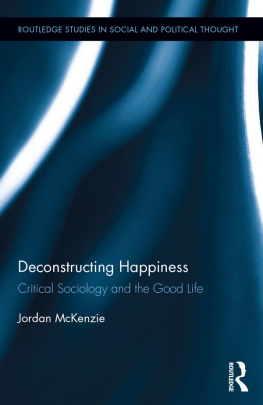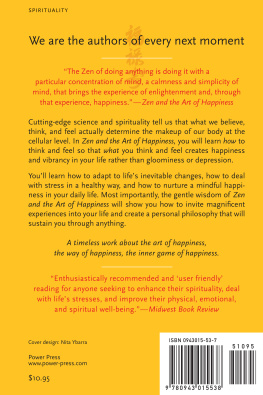Martin - Happiness and the Good Life
Here you can read online Martin - Happiness and the Good Life full text of the book (entire story) in english for free. Download pdf and epub, get meaning, cover and reviews about this ebook. City: USA;Oxford, year: 2012, publisher: Oxford University Press, genre: Home and family. Description of the work, (preface) as well as reviews are available. Best literature library LitArk.com created for fans of good reading and offers a wide selection of genres:
Romance novel
Science fiction
Adventure
Detective
Science
History
Home and family
Prose
Art
Politics
Computer
Non-fiction
Religion
Business
Children
Humor
Choose a favorite category and find really read worthwhile books. Enjoy immersion in the world of imagination, feel the emotions of the characters or learn something new for yourself, make an fascinating discovery.

- Book:Happiness and the Good Life
- Author:
- Publisher:Oxford University Press
- Genre:
- Year:2012
- City:USA;Oxford
- Rating:3 / 5
- Favourites:Add to favourites
- Your mark:
- 60
- 1
- 2
- 3
- 4
- 5
Happiness and the Good Life: summary, description and annotation
We offer to read an annotation, description, summary or preface (depends on what the author of the book "Happiness and the Good Life" wrote himself). If you haven't found the necessary information about the book — write in the comments, we will try to find it.
Happiness and the Good Life — read online for free the complete book (whole text) full work
Below is the text of the book, divided by pages. System saving the place of the last page read, allows you to conveniently read the book "Happiness and the Good Life" online for free, without having to search again every time where you left off. Put a bookmark, and you can go to the page where you finished reading at any time.
Font size:
Interval:
Bookmark:
Happiness and the Good Life
Mike W. Martin


Oxford University Press, Inc., publishes works that further
Oxford Universitys objective of excellence
in research, scholarship, and education.
Oxford New York
Auckland Cape Town Dar es Salaam Hong Kong Karachi
Kuala Lumpur Madrid Melbourne Mexico City Nairobi
New Delhi Shanghai Taipei Toronto
With offices in
Argentina Austria Brazil Chile Czech Republic France Greece
Guatemala Hungary Italy Japan Poland Portugal Singapore
South Korea Switzerland Thailand Turkey Ukraine Vietnam
Copyright 2012 Oxford University Press
Published by Oxford University Press, Inc.
198 Madison Avenue, New York, New York 10016
www.oup.com
Oxford is a registered trademark of Oxford University Press
All rights reserved. No part of this publication may be reproduced,
stored in a retrieval system, or transmitted, in any form or by any means,
electronic, mechanical, photocopying, recording, or otherwise,
without the prior permission of Oxford University Press.
Library of Congress Cataloging-in-Publication Data
Martin, Mike W., 1946
Happiness and the good life / Mike W. Martin.
p. cm.
Includes bibliographical references (p. ) and index.
ISBN 978-0-19-984521-7 (hardcover : alk. paper)
1. Happiness. 2. Well-being. 3. Conduct of life. I. Title.
BJ1481.M38 2012
170.44dc23 2011019584
1 3 5 7 9 8 6 4 2
Printed in the United States of America
on acid-free paper
For Shannon, Sonia, and Nicole.
How does happiness enter into good lives? Is it perhaps the highest good, and hence the most important feature of desirable ways of living? Is it instead only one aspect of worthwhile lives, and if so how is it related to other aspects? The answers to these questions are deeply personal and yet invite dialogue. They turn on how we understand happiness, good lives, and a host of practical, psychological, and philosophical issues. In my view, we are happy insofar as we love our lives, valuing them with ample enjoyments and a robust sense of meaning. As such, happiness is one vital dimension of good lives, but only one. My aim is to explore how happiness interacts with other aspects of good lives, in particular moral decency and goodness, authenticity, self-fulfillment, mental health, and meaningfulness in terms of a wide array of justified values. Here is a brief overview.
: Loving Life. What is happiness? The question calls for a concise definition rather than a compendium of things that make us happy. Plato and Aristotle began a tradition of defining happiness in terms of the virtuous life, which in turn they understood in narrow canonical terms. Today, however, most of us understand happiness as subjective and define it entirely in terms of emotions, attitudes, and other mental states. Psychologists aptly call it subjective well-being. In tune with this subjective emphasis, I define happiness as loving ones life, valuing it in ways manifested by myriad enjoyments and a robust sense of meaning, regardless of whether the enjoyments and sense of meaning are rooted in justified values. I also understand the good life as shorthand for a wide diversity of admirable ways of living, ways that embody the virtues and other values in myriad ways.
to liberty. There is even a limited responsibility, rooted in self-respect, to pursue happiness as an aspect of a good life. Of most interest in subsequent chapters, the virtues tend to promote happiness, and happiness often contributes to the virtues.
: Betting on Virtue. How do the virtues contribute to happiness? As Rosalind Hursthouse and others suggest, the virtues are a good bet in pursuing happiness. Specific virtues contribute to happiness in vastly many ways. As a preliminary sampling, I discuss nine virtues grouped in three categories: (1) virtues of the heart, centered on valuing what is good (gratitude, self-respect, love), (2) virtues of the will, centered on strength in pursuing what is good (courage, self-control, hope), and (3) virtues of reason, centered on wisdom (moral understanding, humility, mindfulness). Positive psychologists study how these and many other virtues contribute to happiness, and vice versa, and I draw on their insights while registering some cautions about their procedures.
: Authenticity. Is authenticity a reliable guide to happiness? Be yourself, we are told, and happiness will follow. Discovering and developing our true self, the self that expresses our deepest aspirations and talents, does indeed contribute to happiness by tapping into wellsprings of enjoyment and meaning. Yet authenticity is neither a simple nor a sure guide to happiness. It is not even an independent guide, for what makes us happy is itself an important indicator of our deepest desires and hence of our authentic selves. Moreover, authenticity has multiple aspects that can be in tension with each other: wholehearted caring, self-honesty, self-acceptance, self-creation, and self-realization. In addition, authenticity connects with other values that might be in tension with happiness. These complexities are illustrated with decisions about whether to use biomedical enhancements.
: Happily Self-Deceived. Does illusion promote or diminish happiness? It might do either, depending on the situation. We are frequently mistaken about what makes us happy, and we can deceive ourselves about how happy we are. Within limits, many of these illusions augment happiness by bolstering hope and confidence. Yet honesty is even more important in pursuing happiness. Honesty helps us identify what we want most; it helps us appreciate what we enjoy most and find meaning in; it keeps our expectations realistic; and in general it keeps us in touch with reality as we pursue our vision of a good life.
: Suffering in Happy Lives. Is happiness compatible with suffering? Once again the answer is complicated. Nothing can protect us from tragedies that destroy what we cherish most and thereby undermine happiness. Yet much suffering can be integrated into happy lives, depending significantly on our attitudes. As is often said, suffering can deepen joy and meaning. Not surprising, philosophical perspectives on the value of suffering in good lives both reflect and shape conceptions of happiness.
of happiness, for it fosters self-absorption and undermines meaning and even enjoyment. Instead we should participate in activities and relationships that we find inherently meaningful, rather than solely because of the happiness we hope to find in them. Then, with any luck, happiness comes indirectly. This paradox expresses an important truth, albeit with a dollop of hyperbole. Indeed, it expresses a number of truths that are highlighted by dividing the paradox of happiness into a dozen more specific paradoxes concerning aims, success, freedom, and attitudes. These paradoxes form the backdrop for discussions of philanthropy, love, and work in the following chapters.
: Happy to Help. How is happiness related to helping others? Specifically, how is happiness connected to philanthropy, that is, voluntary giving of time or money for public purposes? Psychologists confirm commonsense beliefs that there are noteworthy correlations, and they see causation moving in two directions. On the one hand, helping tends to contribute to the helpers happiness, although not always. On the other hand, being happy tends to motivate happiness. This happiness-promoting aspect of giving is important in understanding the motives of philanthropists, which, as in most areas of life, typically mix self-interested and social-oriented motives. Yet there are also philosophical issues concerning how happiness, interacting with other aspects of good lives, enters into justifying.
Next pageFont size:
Interval:
Bookmark:
Similar books «Happiness and the Good Life»
Look at similar books to Happiness and the Good Life. We have selected literature similar in name and meaning in the hope of providing readers with more options to find new, interesting, not yet read works.
Discussion, reviews of the book Happiness and the Good Life and just readers' own opinions. Leave your comments, write what you think about the work, its meaning or the main characters. Specify what exactly you liked and what you didn't like, and why you think so.

